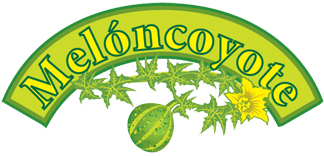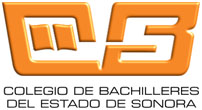WWW.MELONCOYOTE.ORG
Journalism to Raise Environmental Awareness
Grassroots Bulletin on Sustainable Development in Northwest Mexico
DIRECTORY
Collaborators in this issue
Baja California
Talli Nauman
Sonora
Mario Luna Romero
Miguel Ángel Torres
Raquel Padilla Ramos
Juana Elvia Verdugo Martínez
Miriam Espinoza
Nayarit
Agustín del Castillo
Sinaloa
Talli Nauman
Baja California Sur
Sergio Morales Polo
Miguel Ángel Torres
Debra Valov
Editorial Board
Talli Nauman (San Ignacio, B.C.S.)
Debra Valov (Mulegé, B.C.S.)
Griselda Franco Piedra (Guaymas, Son.)
Miguel Ángel Torres (Aguascalientes, Ags.)
Consultants Vol. 7, No. 1
Silvia Susana Sánchez Barba
Fernando Bejarano
Dahl McLean
Translations Vol. 7, No. 1
Debra Valov
Talli Nauman
G. Pacifica
Acknowledgements
Lasecomujeres.org
SuMar - Voces por la Naturaleza, A.C
Design
Debra Valov; Mulegé, B.C.S.
Contact
meloncoyote [at] gmail.com

Melóncoyote is a product of Journalism to Raise Environmental Awareness (abbreviated PECE in Spanish), an independent communications project founded in 1994 with the support of the MacArthur Foundation.
The viewpoints expressed are solely those of the authors. This work may be reproduced in part or whole, with images and illustrations, as long as the publication source and authors are cited.
 |
 |
Faced with institutional corruption, the people fight back to defend their heritage
In this edition of Melóncoyote we have good news to report, as well as some big challenges. Both of these reflect the daily confrontations between corporate extractivism and defense of the land, as well as of natural resource management being in the hands of communities, towns, and neighborhoods, with support from environmental and human rights defenders.
It is inevitable that some of this good news would be the result of challenges that have had to be confronted using the only tools on hand: reason, laws and popular resistance. From there we go to leaders of indigenous communities who have been present in high level international forums, bringing hope that justice will be achieved in response to their demands, as is the case with the Yaqui Nation.
We highlight efforts being made at the level of neighborhoods, schools, and various other institutional sectors to reinforce environmental education as well as the prevention of, and actions against, contamination such as those being undertaken by high school advisors and students.
Land and natural resource defense would not be successful without philosophical and ethical underpinnings or the sense of belonging to a community, to a territory or some other sector, as is explained in two articles from Raquel Padilla and Sergio Morales that will hopefully serve as inspiration.
The dire situation created by the authorization of numerous small and large-scale projects that end up benefitting just a small number of people—impresarios, politicians and even citizens who have sold their influence—wouldn’t be possible without the existence of corruption. This as an underlying theme of several stories we cover in this issue and occurs throughout the Gulf of California and all across Mexico.
Faced with the permissiveness of the Mexican authorities, international relationships have a place of growing importance in the application and compliance with the law. An example is the case of the endangered vaquita porpoise. Dead vaquita´s continue to be found day after day in spite of the management plan already in place to protect them.
In the recent bilateral meeting (July 22) between the presidents of Mexico and the United States, an agreement was reached on a joint program to save the cetacean. The program’s four points are:
- 1. Mexico will impose a permanent ban on the use of drift nets for all fisheries within the vaquita’s habitat in the Upper Gulf of California.
In both countries:
- 2. Efforts will be made to cooperate and to immediately apply measures to stop poaching and commercial fishing of totoaba and its swim bladders;
- 3. Efforts will be redoubled, in collaboration with international experts, to develop alternative fishing techniques and equipment to replace the drift nets so as to prevent the entrapment of the vaquita and establish a “vaquita safe” fishery; and
- 4. They will establish and carry out a long-term program to permanently remove and dispose of illegal fishing equipment abandoned in the vaquita’s habitat in the upper Gulf of California.
In addition, the United Nations World Heritage Committee urged Mexico to take immediate actions to save the porpoise, since by not doing so, it would run the risk that not only the vaquita, but also the “Protected Areas and Islands of the Gulf of California” would be designated as “endangered,” a disgrace for Mexico.
We invite you to read and share Melóncoyote with the knowledge that it is another tool to achieve environmental justice.
Why Melóncoyote?
Our project dates back to 1994, when “Journalism to Raise Environmental Awareness” (abbreviated PECE in Spanish) was formed. In 2004, PECE played a role in the founding of the national professional organization The Mexican Environmental Journalist’s Network. In 2005, when we started the first grassroots journalism project in the Gulf of California, our team chose the name Melóncoyote because it is a species emblematic of the region at the heart of our mission.
The Coyote Melon, known in Spanish as melón coyote or calabacilla (which includes the species Cucurbita palmata, C. cordata, C. digitata and C. foetidissima) is a wild perennial gourd that is resistant, versatile, beautiful, useful and native to the sandy soils that characterize the Gulf of California zone. The coyote melon is found in the region’s seven states: Baja California Sur, Baja California, California, Arizona, Sonora, Sinaloa, and Nayarit. A vine, Coyote Melon has an immense root that guarantees its survival against hard times while its long stems serve to anchor the soil in fragile areas.
The indigenous peoples of the area, bearers of the region’s traditional wisdom, describe the plant and how it is used. As medicine, it is bitter, but effective. As a musical instrument, it makes a beautiful rattle. Its seeds provide oil and a flour which contains a high level of protein. Its shell is ideal as a container for all matter of things. Because of all of these traits, and because it is an integral part of the food chain and one of the principal foods of the coyote, they named it “Coyote Melon”.
Our team of collaborators chose this name because it is a plant found throughout the region, and in doing so, we wanted to stress our intention to create a large-scale communications medium, capable of spreading (on a regional level) the news about efforts being made towards sustainability. With this symbolic name to represent our work, we are sending a clear message about our respect for the land and the sea, as well as for the ancestral cultures and customs of the region. We see the establishment of this medium for education and dissemination as something urgent, given the idiosyncrasies of the region. We have conceived this project as being an integral element of the environment, something positive like the Coyote Melon.
Faced with the challenges of growth in the region—a low population density, its recent political incorporation into the national government, a high degree of natural attraction and its proximity to the strong investment sector of the United States—we understand the implications of the pressures for development. Dealing with these challenges and pressures will require informed citizens who have the chance to participate in the decisions that affect their land, water, air, biodiversity and their future. We invite others to join with us, to participate in building this medium and to fight for a stable future for the region.
All work on behalf of Melóncoyote is voluntary.
